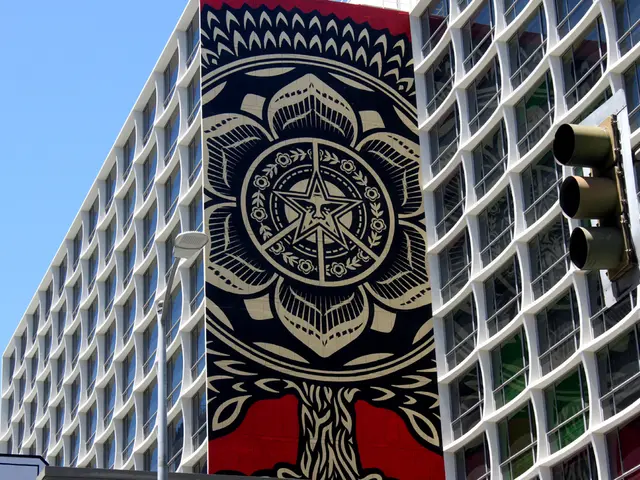South Africa introduces antiquated e-hailing regulations, leading drivers to express confusion
In a move aimed at formalizing the transport sector, President Cyril Ramaphosa signed the National Land Transport Amendment Act (NLTA) into law on September 12, recognising e-hailing platforms like Uber and Bolt as part of South Africa's public transport system. However, the new regulations have sparked controversy among e-hailing drivers.
The NLTA aims to regulate the e-hailing industry, with new requirements for drivers, including the implementation of a panic button and the need for compliant branding. The requirement for a panic button has left drivers puzzled about its implementation and functionality. Some drivers express concern about the potential danger of branding their personal cars, while others worry about the cost and the impact on their earnings.
Vhatuka Mbelengwa, head of presidency at the National e-Hailing Federation, believes the law reflects outdated thinking and that the dialogue is a decade late. Younger drivers have complained about being excluded from consultations regarding the new laws.
The new rules for e-hailing permits have left some drivers concerned about their access to permits, as they have been waiting for years for permits that never come. Drivers must apply for e-hailing permits through municipal authorities, with fees starting around R300.
Uber has stated that they are currently assessing the requirements of the new legislation and remain committed to working with government and industry partners to support a smooth transition. The company's focus remains on ensuring drivers can earn sustainably, while maintaining strong safety and compliance standards and delivering a seamless experience for riders.
However, the new rules for e-hailing permits have been met with backlash from drivers who argue that they threaten both their safety and earnings. The rules state that e-hailing permits in South Africa are linked to a driver's city of registration, meaning a driver with a Pretoria address can only operate in Pretoria, and trips to other cities would require dropping off a passenger and immediately returning without the option of picking up another ride. This has raised concerns about the impact on business and the cost of fuel.
The South African cities affected by the law linking e-hailing permits to the city of driver registration include major urban areas where Uber and Bolt operate. The new NLTA regulation aims to better regulate the e-hailing industry across South Africa, though specific city names are not explicitly listed in the search results.
Drivers have been given 180 days to comply with the new rules before enforcement begins, with non-compliance leading to penalties of up to R100 000. For some drivers, the branding rules pose the greatest risk, as they will need to partner with local advertising agencies or fleet companies for compliant branding.
Fickson Chauke, an e-hailing driver, says the rules do not align with the tech disruption that people need. Thobani Zulu, another e-hailing driver, notes that the new rules will be a big loss for the business and costly in terms of fuel. Qhubani Moyo, a Johannesburg-based driver, expresses concern about the potential danger of branding his personal car.
The incident at Maponya Mall in Soweto in August 2025, where an e-hailing driver was shot and killed, has highlighted the long-running tensions between traditional taxi associations and e-hailing operators. The National e-Hailing Federation has raised concerns about the dangers of branding in townships and informal settlements.
As the deadline for compliance approaches, the debate continues over the impact of the new regulations on e-hailing drivers and the industry as a whole. The government and industry leaders will need to address the concerns raised by drivers and work towards a solution that ensures the safety and sustainability of the e-hailing sector in South Africa.
Read also:
- Aquatech purchases Koch's Direct Lithium Extraction business, merging Li-ProTM DLE technology into the PEARLTM Technology Platform.
- Li Auto faces scrutiny after crash test involving i8 model and a truck manufacturer sparks controversy
- Emerging Investment Trends in China's Ethical Finance Sector for 2025
- Construction and renovation projects in Cham county granted €24.8 million focus on energy efficiency







